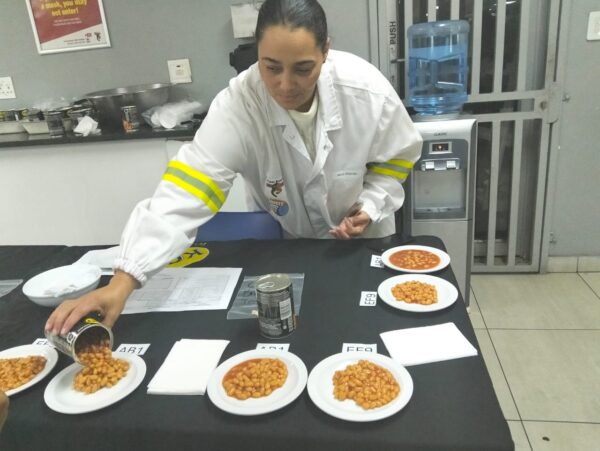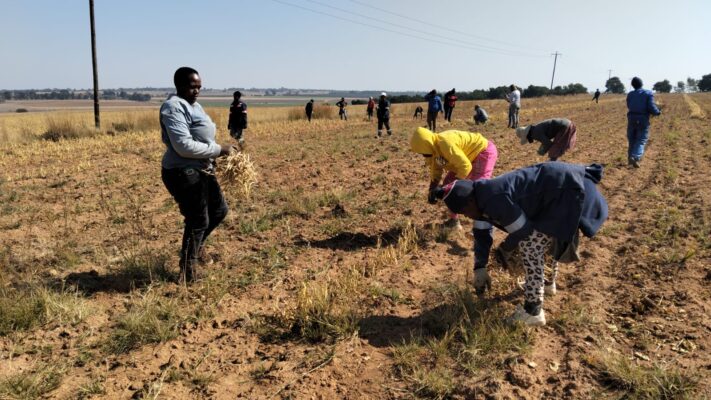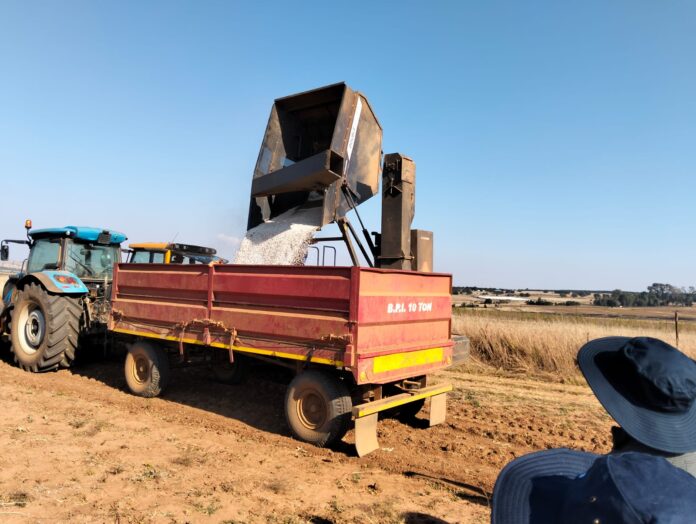Beans, including Baked Beans, have quietly become a staple in South African households, ranking as a top-five protein source after poultry, beef and veal, pork, and mutton/lamb.
Affordable, nutritious, and versatile, these legumes—particularly the small white bean—have been riding a wave of popularity driven by changing dietary preferences and increased demand for plant-based foods.
South Africa’s per capita consumption of beans was approximately 1.3kg in 2021, representing a notable 39.8% increase from 2020. As one of the most affordable sources of protein, costing around R0.32c per gram, beans are especially accessible for lower-income households.
The baked beans segment, in particular, is experiencing solid growth, fueled by affordability, nutritional value, and increasing demand for plant-based proteins. Rising consumer interest in plant-based diets is creating new opportunities in this market.
Tiger Brands’ Bean Pipeline: Supporting Farmers and Feeding a Nation
At the heart of this bean boom is Tiger Brands, a dominant player in the Baked Beans category. The company procures approximately 19,000 tonnes of small white beans annually, primarily from farms in Mpumalanga and the North West province.
Currently, 83% of its small white beans are sourced locally, with 17% imported—mainly due to fluctuations in local crop availability caused by climate change. However, Tiger Brands is actively working towards sourcing 100% of its crop requirement locally by supporting farmers.
One key enabler this season was the 2025 La Niña (wet) season, which brought ample rains to local farming regions. As a result, Tiger Brands is seeing good quality and volume during the harvest, which began in May 2025. The growing season for small white beans runs from January to May, followed by a harvest period that extends until the end of June.
The harvest is a meticulous process. Beans are pulled from the ground by hand and packed in windrows, where they are left to dry for a few days. After this natural drying period, a harvester is used to pick them up. Tiger Brands provided harvesters to farmers this season to ensure the crop was harvested as efficiently as possible.
Once harvested, the beans are transported to a cleaning facility. Here, soil, stones, and other foreign objects are removed mechanically. The beans are then sorted by colour and size and classified as Grade 1, 2, or 3. Only quality Grade 1 beans make the cut for KOO Baked Beans. Notably, this cleaning is a dry process that does not use water.
Tiger Brands collaborates closely with certified agronomists and farmers to ensure the production of high-quality crops. Farmers receive a full suite of agronomy support services, including soil sampling, a fertilisation programme, irrigation support, crop spraying, and crop management like weeding.
The SE Holdings Partnership: Farming for the Future
 Integral to Tiger Brands’ local sourcing strategy is its partnership with SE Holdings, an organisation providing end-to-end agricultural services.
Integral to Tiger Brands’ local sourcing strategy is its partnership with SE Holdings, an organisation providing end-to-end agricultural services.
These services include financial and non-financial support to a network of farmers, agronomic support, mechanisation, market linkages, agroeconomics training, soil and crop health optimisation, and overall hands-on business mentorship.
During the 2024/2025 season, a total of 13 farmers—including six women—planted small white beans over 1,527 hectares of land. The projected harvest from SE Holdings farmers to be procured by Tiger Brands stands at 1,530 tonnes.
Among the participating farms is that of Marienkie Ntuli, who planted 86 hectares of small white beans for Tiger Brands. She also grows maize, soya, and keeps livestock. Another standout is Nolufefe Maqubela, who planted 143 hectares of beans and is also engaged in maize cultivation and poultry farming.
SE Holdings Director, Mpumi Maesela, notes that collaboration and support from partners, including Tiger Brands, go a long way in ensuring a successful farming season.
Inside the Factory: From Beans to Baked Brilliance
Once the beans arrive at the Tiger Brands Culinary manufacturing site in Boksburg, east of Johannesburg, they undergo another round of meticulous processing. The facility is a production powerhouse, employing 873 permanent staff, with six canning lines and five labelling lines. KOO Baked Beans are processed on four of the packaging lines.
The manufacturing process begins with a dry-cleaning phase where a Destoner removes any residual stones missed during the initial cleaning. The beans are then sorted, washed, and rinsed. Next, they are soaked in hot water to soften them before being sorted again.
These softened beans are then filled into cans. A secret tomato-based sauce is added, and the cans are sealed before heading into a rotary cooker. Here, the beans are cooked inside the sealed can. After cooking, the cans are cooled and subjected to a 10-day incubation process.
Quality is non-negotiable. The Tiger Brands Quality team samples each batch and conducts micro-analysis to ensure the final product meets stringent specifications before it is released to the market.
The facility can process up to 150 tonnes of small white beans per day, producing over 9 million cases—or 240 million cans—annually. Every day, 424 pallets are shipped to primary and secondary distribution centres, ensuring a steady supply of South Africa’s favourite baked beans.
KOO Baked Beans: A Household Name
A true icon in South Africa, KOO Baked Beans enjoys widespread brand recognition and loyalty. Canned foods are a staple in nine out of ten South African homes, and KOO is found in at least 80% of these households. The brand is South Africa’s number one Baked Beans and is found in seven out of ten homes.
KOO is one of Tiger Brands’ leading Power Brands based on equity, volume, and value ranking. The brand was established around 1940 by a group of farming families in the Western Cape, initially aiming to provide seasonal peaches year-round through canned innovation. The now-famous Baked Beans in tomato sauce were launched in 1946.
Beyond the shelf, KOO has continued to innovate. In 2021, it launched a reality television culinary competition, “KOO Colour Your Plates”, designed to promote healthier eating habits. Now in its fourth season, the show’s latest winner is Sandanathi Masita. In 2023, KOO refreshed its packaging, giving the iconic brand a modern new look.
A Bean for Every Plate
The journey of the small white bean—from soil to the shelves of South African homes—is a remarkable tale of agricultural resilience, manufacturing precision, and brand legacy. With strong partnerships, a commitment to local sourcing, and a pulse on consumer preferences, Tiger Brands and KOO Baked Beans are helping to redefine what it means to eat well and affordably in South Africa.
As consumer demand for plant-based proteins continues to rise and climate-resilient farming practices become more critical, the humble small white bean is proving it’s more than just a side dish—it’s a staple for the future.








